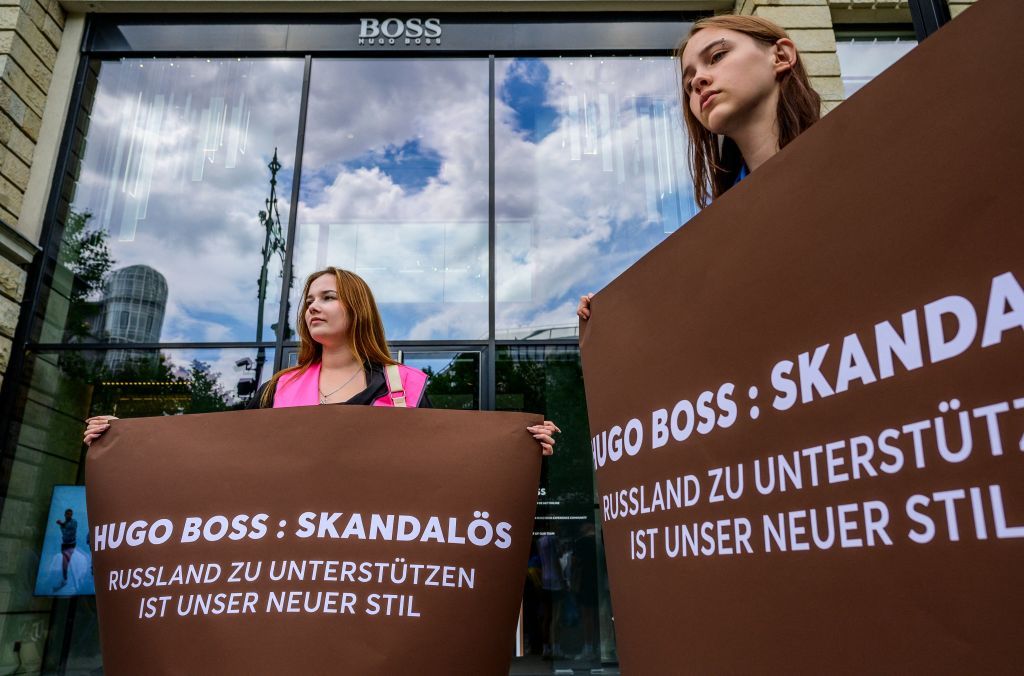German fashion chain Hugo Boss has made the decision to sell its Russian subsidiary to the retail group Stockmann, following the suspension of its retail operations in Russia due to the full-scale invasion of Ukraine in February 2022. The sale was approved by Russia’s Deputy Trade Minister Viktor Yevtukhov on the condition that all jobs remain in place. This move comes as many Western companies face pressure to cease their business in Russia. Notably, Hugo Boss had kept parts of its wholesale business running in Russia until now, stating that it had not violated any Western sanctions. The terms of the deal were not disclosed, but it is likely that the company incurred a financial loss due to Russian government rules on selling assets.
Since companies like Hugo Boss have exited the Russian market, losses for foreign firms who have made the decision to leave have reportedly surpassed $107 billion. This staggering figure includes exit measures imposed by the Russian government, in addition to writedowns, lost revenue, and other factors. Many Western companies have faced challenges in Russia following the invasion of Ukraine, with some choosing to exit the market altogether. The sale of Hugo Boss’ Russian subsidiary to Stockmann is just one example of companies making strategic decisions in response to the conflict in the region.
The retail group Stockmann will now take over Hugo Boss’ operations in Russia following the acquisition of its subsidiary. Stockmann, a Finnish company, operates department stores and fashion chains in several countries. With this acquisition, Stockmann will expand its presence in the Russian market and continue to operate the Hugo Boss brand in the region. The sale of the Russian subsidiary is a strategic move for Hugo Boss as it navigates the challenges of doing business in a region affected by war and geopolitical turmoil.
The approval of the sale by Russia’s Deputy Trade Minister underscores the importance of complying with local regulations and ensuring that jobs are preserved in the transition. While Hugo Boss will no longer have a direct presence in Russia with its own legal entity, the brand will still be available through Stockmann’s operations in the country. This acquisition represents a significant development in the retail sector in Russia and demonstrates the impact of geopolitical events on international businesses. Companies must carefully assess their strategies and operations in regions affected by conflicts and geopolitical tensions to make informed decisions that align with their values and business objectives.
As Western companies continue to navigate the challenges of operating in Russia amid the conflict in Ukraine, the sale of Hugo Boss’ Russian subsidiary to Stockmann highlights the complex decisions facing multinational corporations. The financial implications of exiting the Russian market, combined with geopolitical factors and regulatory requirements, present significant challenges for companies seeking to uphold their ethical standards and business interests. By making strategic decisions like selling subsidiaries or suspending operations, companies like Hugo Boss are adapting to the changing landscape in Russia and responding to the demands of the global marketplace. The impact of these decisions extends beyond individual companies to the wider retail industry and reflects the interconnected nature of the global economy.


